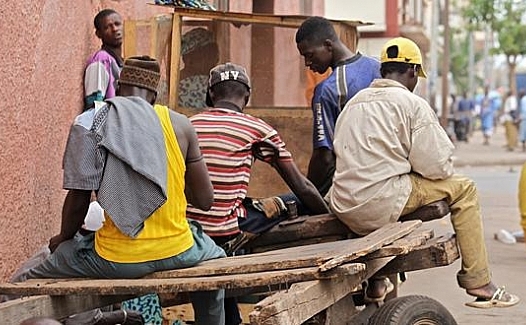The Ghana Statistical Service's Quarterly Labour Statistics for 2022 have laid bare the persistent challenges faced by a significant portion of the population.
Unemployment and food insecurity plagued at least a quarter of a million individuals throughout the entire year, peaking at 330,000 in the second quarter.
The findings, extracted from the Ghana Annual Household Income and Expenditure Survey, depict a harsh reality where over half a million people in the labour force endured both unemployment and multidimensional poverty each quarter.
The figures ranged from 550,000 in the fourth quarter to a staggering 780,000 in the first.
While the fourth quarter saw a slight dip in the overall unemployment rate at 11.5%, gender and urban-rural disparities persisted.
Females faced a higher unemployment rate of 12.5% compared to males at 10.3%, and urban areas experienced a more significant burden with a 14.3% unemployment rate, in stark contrast to the 7.8% in rural areas.
Perhaps most alarming is the prevalence of vulnerable employment, with a staggering 68.1% of employed individuals aged 15 and older falling into this category in the fourth quarter.
Vulnerable employment includes self-employed individuals without employees or contributing family workers.
Regions like the North East (92.1%), Savannah (90.6%), and Northern (84.2%) recorded the highest rates of vulnerability.
The report also sheds light on the educational front, revealing that over 2.1 million individuals aged 15 to 35 were not in education, employment, or training (NEET) throughout the year.
In the fourth quarter alone, 20.2% of individuals in this age group were NEET, with Greater Accra leading at 26.5%, followed by Ashanti (22.9%) and Upper East (22.9%).
All 16 regions reported double-digit figures for youth NEET, with the lowest recorded in Oti at 11.2%.
As the nation grapples with these concerning statistics, it underscores the pressing need for comprehensive strategies to address unemployment, food insecurity, and vulnerable employment across diverse regions and demographics.
Latest Stories
-
Debt restructuring programme was poorly structured – Finance Minister Ato Forson says
3 hours -
Mahama appoints fresh batch of ambassadors to key global capitals
4 hours -
Isak wants to explore move away from Newcastle
4 hours -
Benin names Spike Lee and wife ambassadors for African-Americans in the US
4 hours -
Trade deal on US tariffs within reach, says EU, as 1 August deadline nears
5 hours -
Trump bickers with Powell over Fed renovation costs
5 hours -
‘We will not default’ – Ato Forson assures bondholders as GH¢20bn DDEP payment plan unfolds
5 hours -
Take time to get VAT reforms right before scrapping COVID-19 levy – Prof. Asuming
5 hours -
France will recognise Palestinian state, Macron says
5 hours -
Foreign Affairs Ministry denies issuing Ghanaian passports to non-citizens
6 hours -
Uganda to host Asia/Africa play-off for 2027 Rugby World Cup
6 hours -
Landslide destroys farmlands and livelihoods in Santrokofi, sparks famine fears
7 hours -
UHAS Dean urges strategic role for laboratory managers in 24-hour health system reform
7 hours -
Society of Medical Laboratory Managers chair calls for inclusion in core health management
7 hours -
Mahama promises to renovate Atta Mills Presidential Library
7 hours

